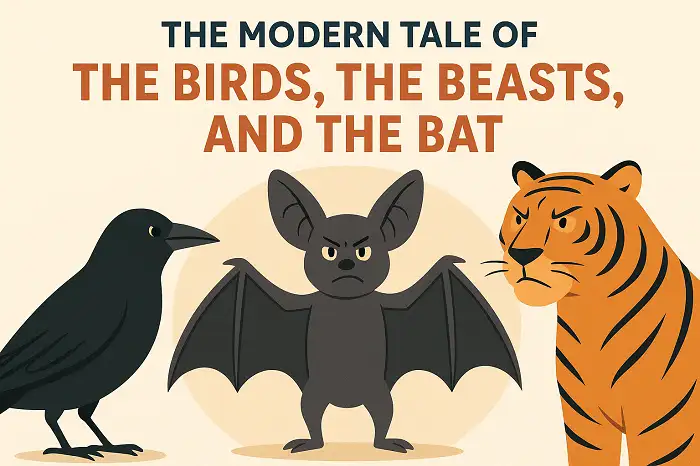The Rich Man and the Tanner by Aesop for ESL students with new vocabulary in real context, video, moral of the story, and questions for discussion based on the English Immersion Program available in the public domain on Gutenberg Project Video of the Rich Man and the Tanner https://www.youtube.com/watch?v=wU5NWerR6qI The Rich Man and the Tanner A rich man took up his residence next door to a tanner, and found the smell of the tan-yard so extremely unpleasant that he told him he must go. The tanner delayed his departure, and the rich man had to speak to him several times ...
Home » English Short Stories » The Rich Man and the Tanner by Aesop for ESL Students

The Rich Man and the Tanner by Aesop for ESL Students
Updated: by Dr. Mohammad Hossein Hariri Asl
Time to Read: 5 minutes | 340 Views | 8 Comments on The Rich Man and the Tanner by Aesop for ESL Students
Share This Post
About the Author
Dr. Mohammad Hossein Hariri Asl is an English and Persian instructor, educator, researcher, inventor, published author, blogger, SEO expert, website developer, entrepreneur, and the creator of LELB Society. He's got a PhD in TEFL (Teaching English as a Foreign Language).
Number of Posts: 4242



3. First, many people hate waking up early for school or work, but over time, they adapt and may even come to appreciate the routine. Secondly, people often dislike certain aspects of their jobs like meetings, deadlines, or repetitive task. But, they tolerate them because of financial necessity or career growth.
You’ve hit on a key point about adaptation – it often arises from necessity. Whether it’s the daily grind of early mornings or the less enjoyable parts of our jobs, we have a remarkable capacity to adjust and even find positives when faced with consistent pressures. As you pointed out, the initial dislike can lessen over time, sometimes leading to acceptance and even an appreciation, especially when there’s a motivating factor like financial security or a long-term goal.
2. In my opinion, the rich man had the ability to move and go to another place. In this case, he did not have to spend his time and energy to change his neighbor.
While the rich man certainly could have moved, the fable highlights his flawed reasoning. It wasn’t about the ability to relocate, but rather the inability to adapt. The rich man’s discomfort stemmed from his own sensitivity to the tanner’s trade, not an inherent flaw in the tanner. Moving wouldn’t address the underlying issue – the rich man’s aversion – it would only relocate the problem. The fable suggests that true contentment comes not from changing our external circumstances or trying to control others, but from managing our own reactions and expectations.
1. Yes, I have experienced it, when we lived in a house by the road. At first, the sound of passing cars bothered me a lot. So that I could hardly sleep at night. Over time, after a year, I got accustomed to the noises.
It’s interesting how adaptable we can be, isn’t it? Your experience perfectly illustrates how habituation works. What initially seemed unbearable and disruptive eventually faded into the background as you got used to it. It’s a testament to our ability to filter out consistent, unchanging stimuli, allowing us to focus on other things and get on with our lives, even amidst what might seem like constant noise.
In situations like learning something difficult e.g. a new language, it may seem frustrating at first, but gradually, with practicing and progressing, people come to enjoy it at last.
Thank you for your comment on the short story, The Rich Man and the Tanner. Here’s the revised version of your paragraph:
Learning something challenging, like a new language, can indeed feel frustrating at first. However, with consistent practice and steady progress, the initial difficulty fades, and the process becomes more enjoyable. Over time, as skills improve and confidence grows, what once seemed overwhelming turns into a rewarding and fulfilling experience.